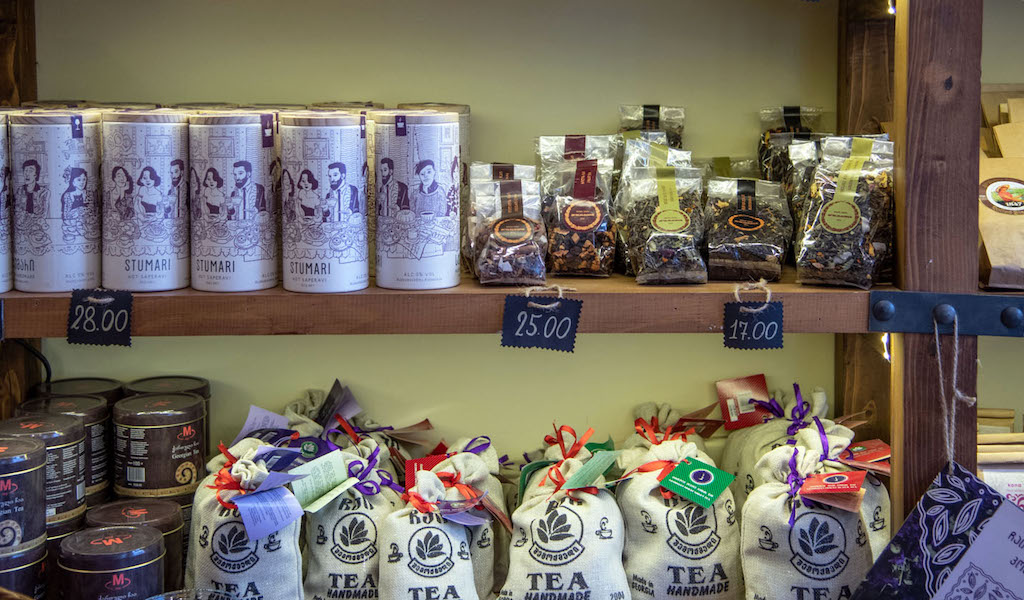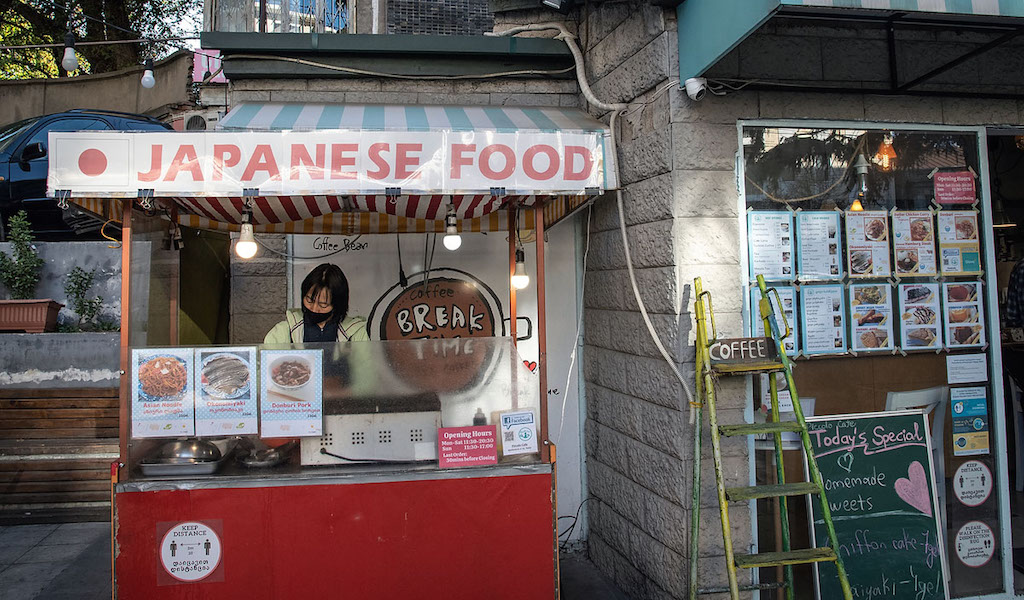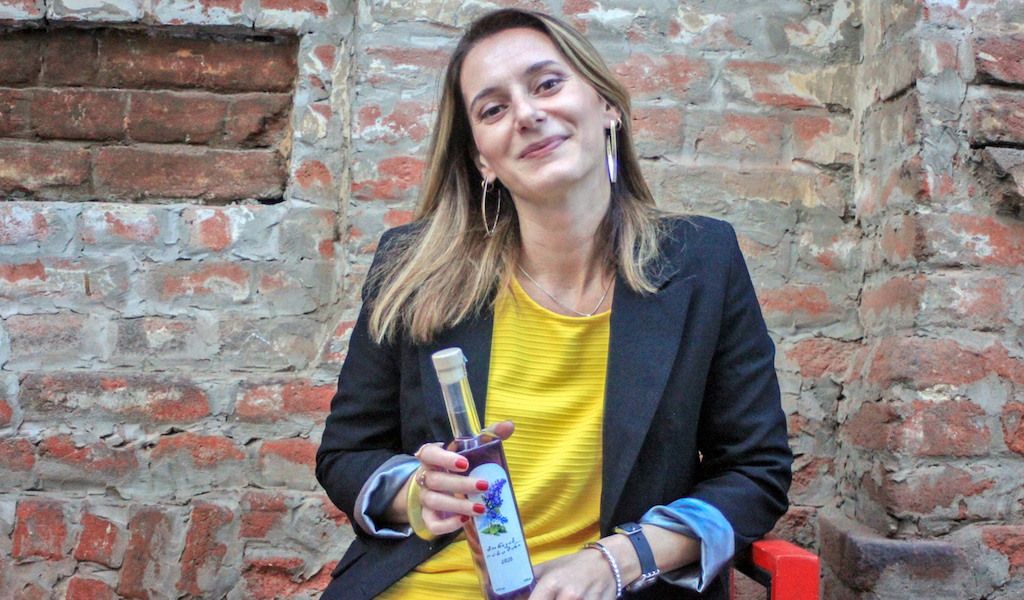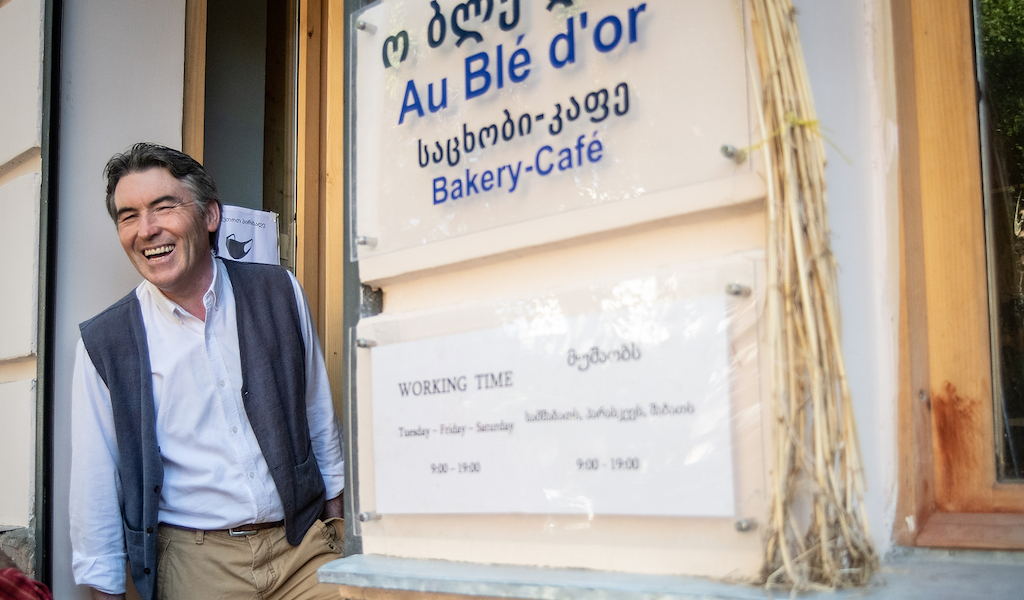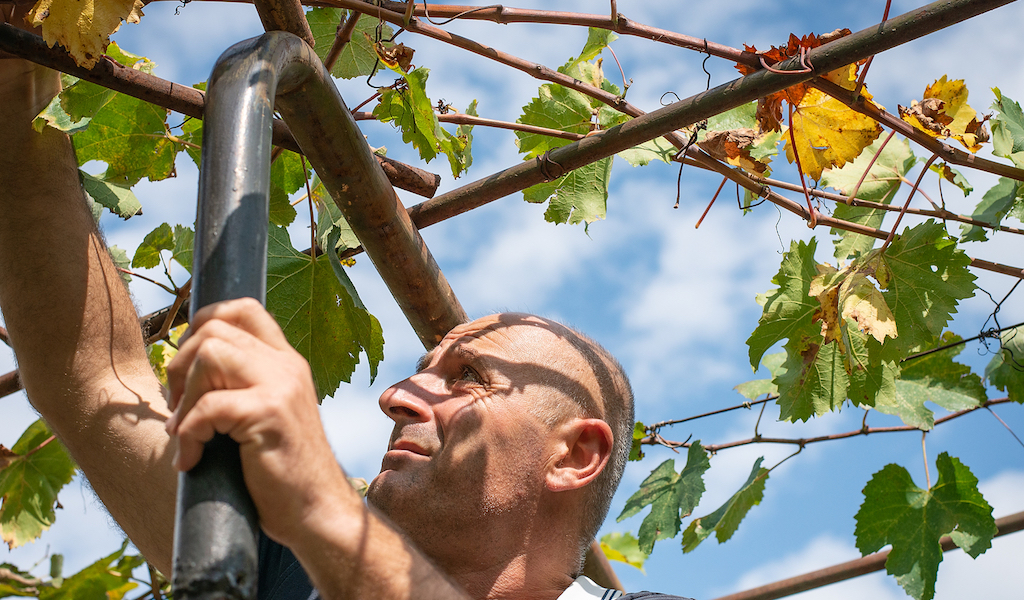We can't find the internet
Attempting to reconnect
Something went wrong!
Hang in there while we get back on track
Search results for "Paul Rimple"
Tbilisi
Georgian Kalata: Pandemic Pantry
Back in the days when we avoided restaurants because they were mobbed with tourists and not because they lacked outdoor seating, when we greeted friends with cheek kisses and never cringed in horror when a person coughed, Vinotheca sold wine from its storefront on Kote Apkhazi Street. A few meters away, Aristaeus Ethno Wine Bar served dambalkhacho fondu at its dinner tables. The two establishments shared the same owner, Gia Darsalia, who also had a shop called Kalata that sold “edible souvenirs,” as he calls them. We liked Kalata so much we tweaked our Tbilisi culinary walk for a stop there so guests could sample artisan cheeses and goodies like gozinaki, a walnut-and-honey candy served only during the holiday season in private kitchens.
Read moreTbilisi
Essential Services: Amo Ra’s Frontline Lunch
We have been watching Covid-19 sweep across the country like an invisible alien death fog claiming hundreds of lives and snuffing out businesses, one by one. Some restaurants intent on survival have changed their menus to delivery-friendly offerings of shawarma, hamburgers and pizza. To save her lunch counter, 34-year-old Naia Gabelia has also chosen delivery, but her strategy is not about what to deliver, but to whom. Amo Ra is located on the 8th floor of the Gorgasali Business Center in the Ortachala district. Since 2018, the restaurant has been serving the Center’s tenants with tasty alternatives to the neighborhood’s limited khachapuri cafés. Amo Ra’s bread and butter, however, was its catering service, prepared by a small staff of talented cooks and served in the spaces at its disposal to rent for events.
Read moreTbilisi
Piccolo Cafe: Breaking the Spell
On the bottom of Janashia Street and Melikishvili Avenue in the lower Vera district, next to the staid Hotel Sakartvelo, there used to be an unremarkable joint, about the size of a matchbox and tucked into a cozy square, selling khachapuri and muddy coffee. It was the kind of place nobody missed when it closed, as we knew someone else would come along and open another uninspired khachapuri café, rinse and repeat. An Iranian couple tried breaking the jinx by opening an Italian-inspired café named Piccolo, but they eventually closed. Last year Shinichiro (Shin) and Yukiko (Yuki) Ito took over the spot and kept the name, although they offered something Tbilisi had not yet seen – Japanese street food.
Read moreTbilisi
Liquid Learning Curve: The Growth of Wine Education in Georgia
Our water glasses were filled to the brim with amber rkatsiteli. After the toast, Ramaz carefully lifted his glass to his nose, followed with a connoisseur’s affirmative head tilt and knocked it back, not coming up for air until the glass was dry. “Super wine!” he exclaimed, smacking his lips and exhibiting the most sophisticated appreciation I had yet witnessed in the birthplace of wine. These were the years locals described wine as either “clean” or not. No one evaluated the nose or flavors because wine was what you washed a sagging table full of food down with, toast after toast, to the bottom, pitcher by pitcher. We judged wine by hangover intensity. The milder the headache, the cleaner – and better – the wine.
Read moreTbilisi
Flower Power: A Budding Distiller’s Lilac Chacha
We have a Georgian friend named Besik who worked in the Sudanese desert removing landmines. At base camp he came across an old pressure cooker and copper tubing and fashioned himself a little still he filled with fermented bananas. To his workmates, Beso was nothing less than a hero, as Sudan had been dry since 1983. “But banana chacha?” we cried. “Sure,” he said. “You can make chacha from any fruit.” Technically, chacha is fermented grape pomace, but the word is also synonymous with “white lightening” and is used to describe any fruit-based spirit, including quince, feijoa and melon. There is now a flower-based chacha, too, thanks to a Tbilisi woman who has created a smooth distillation from lilacs.
Read moreTbilisi
Au Blé d’or: Grain of Truth
Someone once said that humanitarian workers are like mercenaries, missionaries or madmen. It is a description we have also applied to expats who end up in far-flung places like Georgia. Like the foreigner out in the secluded Kakhetian village of Argokhi, between the Alazani River and the Caucasus Mountains, who has forged his life growing a nearly extinct variety of native wheat and baking it into bread; but he is no madman. He’s a Frenchman. We had first heard about Jean-Jacques Jacob some years ago while visiting the Alaverdi Monastery in Kakheti, when a friend pointed north of the giant cathedral and told us of a Frenchman who had started a farm in the middle of nowhere.
Read moreTbilisi
Wine Week 2020: The Vine Whisperer of Imereti, Georgia
Editor’s note: Inspired by our Wine Clubs in Tbilisi, Lisbon and Athens and the grape harvest season, we have asked our correspondents to share the stories of winemakers and wine shops that are making a splash in their city for our Wine Week 2020. We are in Terjola, Imereti, sitting at a cozy front-yard table under a womb-like gazebo of intertwined grape vines, and our host Gia Chubinidze has brought another pair of bottles for us to try. We had already gone through a host of whites and were moving on to his reds. “This one had 14 days of skin maceration,” he declares of his 2019 otskhanuri sapere with a nose of black pepper and licorice. It is outstanding wine, like everything he has poured for us, but then Gia is no ordinary winemaker.
Read more